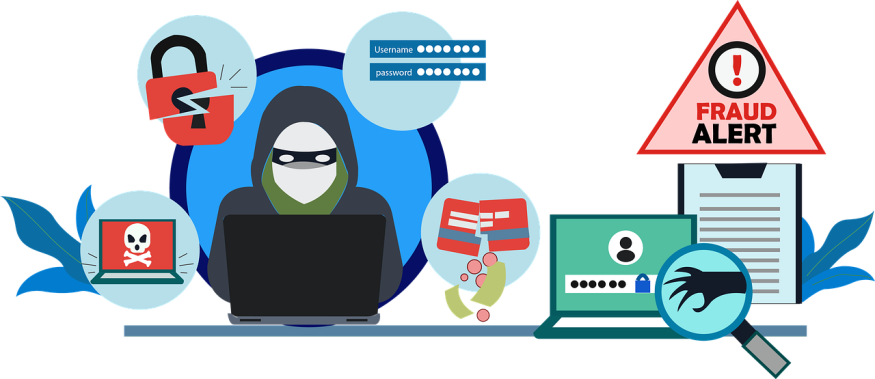
We game to relax and immerse ourselves in different worlds. Staying safe while doing so is often an afterthought. Gaming hasn't been a niche hobby for decades, but being cooped up inside during the pandemic made it take off worldwide. Cyber crooks have been ramping up their efforts accordingly and will continue to do so next year.
So the main question is, are you prepared?
If not, here's a checklist of behaviors you should correct if you want to keep your games and sensitive data out of cybercriminal's reach.
1. Not Having Automatic Updates On
You could follow all our other suggestions and still become a victim if you neglect automatic updates. Hackers frequently discover and exploit security loopholes, which persist if you don't update to the latest version of a software or game as soon as it's available.
If there's an automatic update option, tick it! Your OS and antivirus software takes priority, but don't neglect game stores and individual online games. Steam suffered from a major bug in 2020 that users could exploit to crash others' games or even take over their PCs. A patch was quick to appear, but millions of gamers were vulnerable in the meantime.
2. Using Poor Passwords
Sometimes, only a password stands between your games library or an online game account you put thousands of hours into, and cybercriminals are keen on stealing them. Unique and lengthy passwords containing special characters are a fine defense. "QWERTY" or "ADMIN" is not.
Duplicate passwords are another huge risk. You can remove some of your information from the internet, yet you can't delete your passwords that have leaked to the dark web. If something like this happens, hackers don't even have to target the games you play directly—they can steal or buy lists obtained through data breaches and try their luck with the passwords they find there.
A password manager will help organize your password mess and boost the security of all your accounts, gaming or otherwise. It stores and generates passwords no one can brute force and makes regular password changes much less of a hassle.
3. Not Securing Your Accounts with Two-Factor Authentication
Strong passwords protect your accounts but don't necessarily have protection themselves. Careless users could let theirs slip, or someone could use malware or phishing to acquire them. Enabling 2FA prevents compromised passwords from becoming the weakest link in your account security.
The concept is simple. For example, you can tie your account(s) to a mobile phone number or authenticator. You then have to provide the extra code they receive when you log in the next time and each time you use a different device or are in a different location. You'll also get a notification if someone tries to access the account, giving you time to replace the password.
4. Trusting Strangers In-Game
Online games can lead to lifelong friendships or even relationships. They're also rife with people who only pretend to be interested in hopes of stealing your data or scamming you. Never disclose your account details to anyone, let alone sensitive personal information like your real name and location.
Similarly, make sure not to fall for scams. These may involve suspicious trades, level boosting, item duping, and anything else that sounds too good to be true. Read up on the most common scams plaguing your favorite games and avoid them for peace of mind.
5. Not Protecting Your Internet Connection with a VPN
Games attract everyone from genuinely kind people to petty, easily offended jerks. Extreme specimens in the latter group regularly go out of their way to make others' lives miserable. Things sometimes escalate from griefing in-game to doxing, which can make the victim's real life a nightmare.
You should follow two recommendations to secure your privacy and anonymity online. We already mentioned being smart about what you share, but that's not enough. Getting a VPN will ensure you're untraceable from the technical side, too.
VPNs envelop your entire internet connection inside an encrypted tunnel and make it look like you're connecting from a different location. This cloak applies to all your online activities, including gaming. Your IP address remains hidden, so tracking or harassing you outside the game becomes impossible. Just make sure to perform a VPN test before gaming—it's supposed to change your IP address to one that doesn't belong to you.
6. Falling for Phishing Emails
Gamers' tech-savvy is generally above average, so they're less likely to fall for phishing attacks. Such scams were easy to recognize before, but things aren't as clear-cut now that hackers are using AI to draft genuine-sounding emails and create even convincing deepfake videos.
Treat emails you get from game companies and online marketplaces with suspicion, especially if you know you haven't signed up for them. Don't fall for the urgent messages or click on any provided links unless you're sure the email is genuine.
7. Visiting Sketchy Websites
Projections claim there will be more than 3.3 billion gamers in 2024, and the industry will be worth 100 times more. With such a huge market, it's no wonder attacks on gaming companies are becoming more frequent. Gamers are prime targets themselves, especially the ones who are looking for bargains.
There's a deluge of websites that offer newly-released games at jaw-dropping prices. Such sites usually traffic in stolen keys and may pack a virus or ransomware with game installs as a nasty surprise. Don't let false promises get the best of you! Look suspicious web shops up first on a site like Trust Pilot. Better yet, wait for a sale at a legitimate store.
That will be the majority of the things you shouldn't do when gaming. Don't repeat these mistakes, and you'll be much safer exploring the digital spaces!








